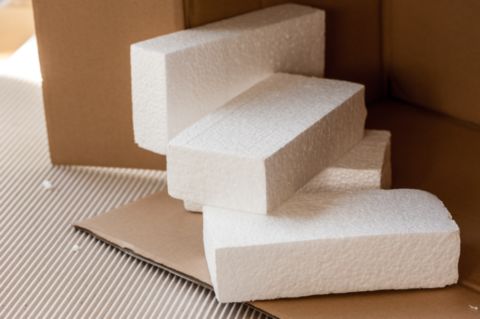Research fellows from the SUSU branch in the city of Zlatoust, jointly with their colleagues from four universities of Moscow and Chelyabinsk, studied the environmental risks when producing new heat-insulating building materials and developed an algorithm of calculating the complex indicator of their composition safety. Using environmentally-friendly building materials, including heat-insulating materials, will ensure the energy performance of buildings and facilities. The research results were published in Civil Engineering Journal.
The available techniques of certification of heat-insulating materials made of extruded foam polystyrene (XPS) allow to evaluate the quality of the physical and mechanical properties according to technical standards. Such approach does not guarantee the ecological safety of the production process and does not comply with the requirements of green construction of buildings.
Scientists from Moscow State University of Civil Engineering, Moscow Power Engineering Institute, Moscow State University of Technology and Management, and South Ural State Humanitarian Pedagogical University worked on studying the material quality and the ecological cleanness of the production process.
The new evaluation of the quality of the extruded foam polystyrene implies the calculation of the complex criterion of ecological safety of the material production. The research methodology is based on determining the ecological requirements, revealing the environmental risks at all production stages, and defining the criteria of the products’ ecological safety. To do that, the scientists simulated the production process and determined the control operations and parameters of control.
“Each criterion of the ecological safety of material includes a number of indicators, among which a representational one is determined. The representational indicator is calculated using a special technological model of production analysis,” said project head, Doctor of Sciences (Engineering), Professor of the Department of Integrated Safety in Construction at Moscow State University of Civil Engineering Liubov Lisienkova.
As a result of the analysis, the production operations were revealed, for which environmental risks are a probability, and the limit values of the representational indicators were determined according to the environmental standards.
In addition, SUSU scientists developed methods to minimize the emission of hazardous substances during each essential operation. It was determined that the sudden increase in the concentration of the atmospheric pollutants may be influenced by such parameters of the technological process as the accuracy of dosing the components and the temperature conditions during the material extrusion.
“To prevent the excess in temperature and not allow for the polymer destruction, during which hazardous substances are generated, we must control the humidity, mass, and volume of the polymer mass components being accepted for processing. Special attention must be paid to the places of storage (stockpiling) of the source raw materials as polystyrene bead is an inflammable material,” explained Candidate of Sciences (Engineering), Associate Professor of the SUSU Department of Economics and Law Ekaterina Baranova.
The developed technique of evaluating the compliance of the synthetic polystyrene production with the environmental requirements can be used for certification of the product quality and as a system of monitoring and evaluation of risks during production. The implementation of the technique of controlling the hazardous production factors will reduce the negative environmental effects.
South Ural State University is a university of transformations, where innovative research is conducted in most of the priority fields of science and technology development. In accordance with the strategy of scientific and technological development of the Russian Federation, the university is focused on the development of big scientific interdisciplinary projects in the field of digital industry, materials science, and ecology. In 2021 SUSU became the winner in the competition under the Priority 2030 program. The university acts as a regional project office of the World-class Ural Interregional Research and Education Centre (UIREC), which is aimed at solving the tasks of the Science and Universities National Project.
Read our news:




